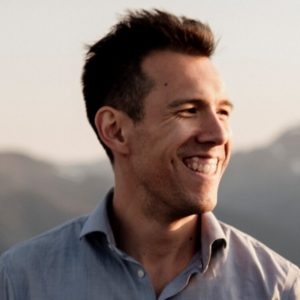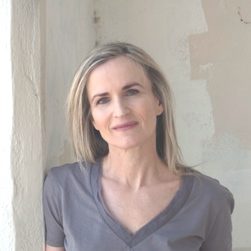FOW FORUM
Subscribe to the Friends of Writers Forum and receive notifications of new posts by email.
Fiction alum Juliet McShannon (Bornia) was recently featured in Five Points Literary Journal. Read an excerpt of “Lucky” below:

The train was late. Lucy sipped the last of her water, and held onto her plastic bottle, lamenting the removal of the trash cans just last month. A commuter had threatened to sue Transnet. It had made the national news: monkeys biting commuters, an increasingly common occurrence. The complainant was white, and happy to be interviewed at her leafy Kloof home. Lucy wondered, a little ruefully, why a white woman of means had taken a train that day? Or any day? She hadn’t said in the interview. Surely that was the more interesting story?
—
Read the rest of this story here: https://fivepoints.gsu.edu/excerpt/lucky/
Juliet McShannon on the web:
Poetry faculty member Dilruba Ahmed has multiple poems recently featured in VQR. Read an excerpt of one of them, “ The White Shirt” below:

The White Shirt
Sometimes, a teacher proposes
we write about something
insignificant, or a friend requests
that poems and posts not get so
political. Imagine something ordinary,
something simple
and free: a white shirt
clipped on a clothesline and
fluttering in the breeze. But I can’t
slip it on with ease
as some might,
though I might long, at times,
for a respite. I try to imagine
how quiet it must be, caught
in a cloth so white
it seems to possess
no color at all, only the pure
bright essence of light
and reality. And unlike snakes
why would we molt
from a skin we can’t perceive?
—
Continue reading this poem as well as well as “Kneading” and “Please Scream Inside Your Heart” at VQR Online | A National Journal of Literature & Discussion
Dilruba Ahmed on the web:
Dilruba Ahmed | Poet & Educator
Dilruba Ahmed (@DilrubaAhmed) / Twitter
Fiction alum Daniel Tam-Claiborne was recently featured in The Seventh Wave. Read an excerpt of “Tomorrow Will Be Even Brighter” below:

My roommate Wei Wei is different. He’s lying spread-eagle in bed, seemingly oblivious to my presence, wearing the dull grimace of an older brother forced to babysit a dim sibling. I clear my throat, trying to exonerate him from his perceived charge.
“Bieguan wo,” I tell him, taking a long drag and directing it toward the closed window. Most people find it impressive that I speak Mandarin. But Wei Wei says nothing, just paws at his shirt like he’s fanning a stove, and directs his attention back to the TV.
For ten years, I’ve done everything a foreigner can do in China. I managed a baijiu bar, taught English at a private kindergarten, ran my own guiding company for tourists. It hasn’t always been easy. I can’t count how many black-outs there’ve been on my street, or how much digouyou I’ve ingested, or how many VPNs I’ve burned through just to outpace the firewall. But there’s a certain recognition here I can’t get back home. After so long in China, life in America has begun to feel illusory. I pride myself on knowing the work-arounds, understanding which strings to pull to get things done.
Continue reading the story here: Tomorrow Will be Even Brighter by Daniel Tam Claiborne – The Seventh Wave
Daniel Tam-Claiborne on the web:
Poetry alum Rebecca Foust has two poems recently featured in Quarterly West. Read an excerpt of “Missing AA Flight 11 on 9/11” below:

Missing AA Flight 11 on 9/11
For want of a nail . . . the rider was lost. –from a 13th century proverb.
What if I had not forgotten the pectin?
What if the beach plum jam had jelled in time
for me to box up the twelve jars the day before
my flight out of Logan? I’d have mailed the jam
—August conserved in amber syrup perfection—
back home as planned…
Continue reading “Missing AA Flight 11 on 9/11” as well as “To the Sonnet” here: https://www.quarterlywest.com/issue-106-foust
Rebecca Foust on the web: Home – Rebecca Foust
Rebecca Foust (@FoustRebecca) / Twitter
Rebecca Foust (@rebecca.foust.52) / Instagram
Poetry alum Leigh Lucas was recently featured in Two Hawks Quarterly. Read an excerpt of “Baby, This is Just to Say” below:

Baby, This is Just to Say
I don’t speak French very well so today I said to my cab driver, Virginie,
I said, Me, now, I am always proud, because if there is something, I can do it! Me. I can.
Do you understand?
To which she responded, Oui, which was mostly just nice of her
because I didn’t really either but I couldn’t stop speaking, I felt just like
a moon bounce on the up-jump, I said,
I can do things, just at me, all alone! I practically shouted it.
C’est merveilleux, she responded, and then I loved her as much as I love anyone in the world.
It was hard for me to say goodbye,
so I gave her my number in case she ever wanted to call,
no pressure, I said, but she didn’t understand because I said it in English.
Read the full poem here: Baby, This is Just to Say by Leigh Lucas – Two Hawks Quarterly
Leigh Lucas on the web:
Poetry alum Nomi Stone was recently featured in Alocasia. Read an excerpt of the poem “Little Starts” below:

My wife secretly took
a bunch of cuttings this fall
while I stood watch: two leaves
of a succulent from IKEA, a tiny nub
from the Milkcrate Café on Girard,
and that other dangler
at the boring party in the room with the coats.
It sent out two beet-red roots! When it did, my
wife yelled out to me just before breakfast: Wife!
Continue reading “Little Starts” here: https://alocasia.org/2022/06/21/nomi-stone-little-starts/
Nomi Stone on Twitter: Nomi Stone (@Nomi_Stone) / Twitter
Fiction alum Rose Skelton was recently featured in Alocasia. Read an excerpt of Skelton’s essay below:

Little Starts
When my wife and I marry in autumn, the seasons are all wrong. On our Philadelphia rooftop, spinach sprouts in the heat of late September and in early October, basil flourishes in pots. Summer flowers—petunias, fuchsias, geraniums—gush from other people’s window ledges. Tomatoes, fat and misshapen, line the counter of the vegetable shop across the street.
On the island in Scotland, where I am from, at this time of year I sleep under one, two, thick quilts, and rain slants sideways across the windows. The shops are void of all summer fruit. There, it is the season I gather mushrooms from the woods, when the cool wet weather pulses black trumpets from the loam. Horn of plenty, birch bolete, chicken of the woods, cep.
But in Philadelphia, the days are a humid stench that won’t let up. The woods, though I scour them, give up nothing to me.
Continue reading “Little Starts” here: https://alocasia.org/2022/06/21/rose-skelton-little-starts/
Rose Skelton on the web: https://rose-skelton.squarespace.com/
Rose Skelton on Twitter: Rose Skelton (@rosieskelton) / Twitter
The Tiny & Intangible auction is back for another year! Once again, we’ll be raising money to benefit Friends of Writers.
Conference attendees can bid on “tiny things” (stuff) in a silent auction beginning July 13.
Anyone connected to the program (students, instructors, staff) can attend the live auction for “Intangible” things (getaways, services, etc.) will be auctioned live on Saturday, July 16 from 4:45 to 6:15 PDT.
The Hat Contest will also be returning, so be prepared with your virtual finery!
If you’re not attending the conference and would like a link to the auction, send an email to wallycampmfa at gmail [[email protected]] by Friday, July 15. Put “Auction” in the subject line. Please include your real name, the year you graduated, and the genre you studied at Goddard or WWC (or other affiliation).